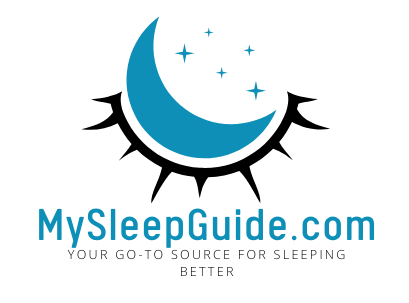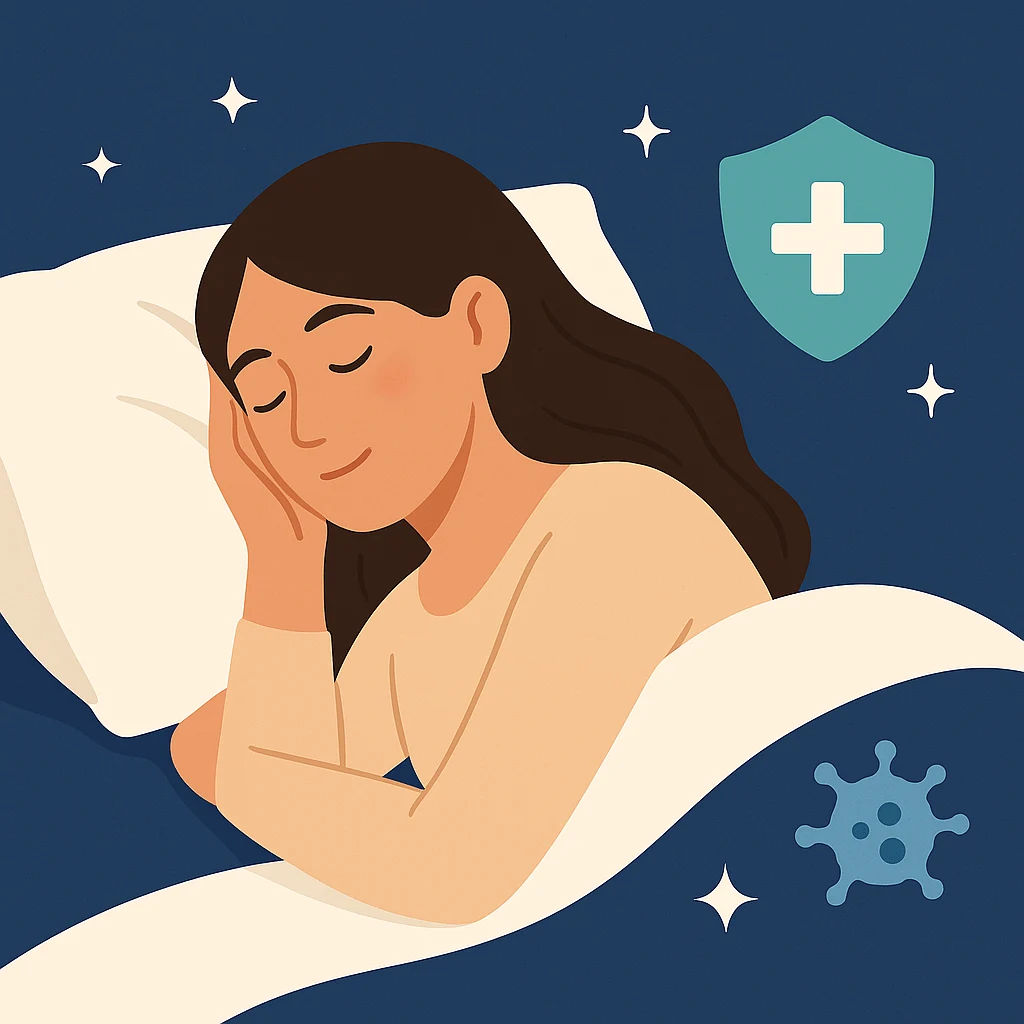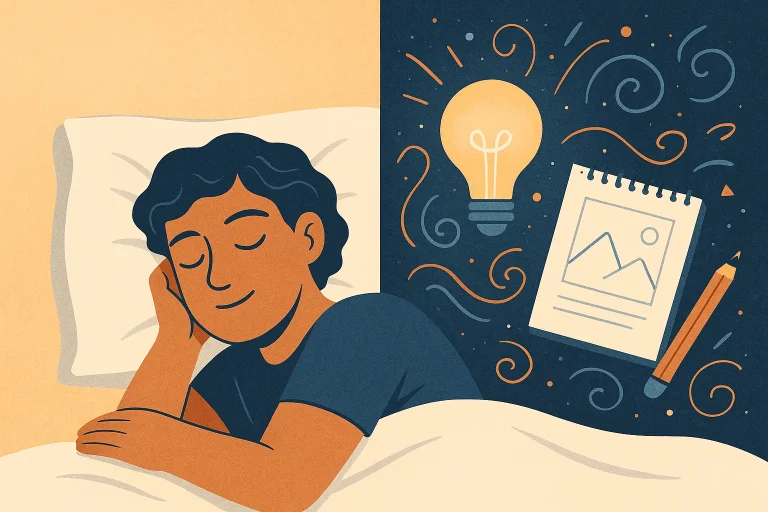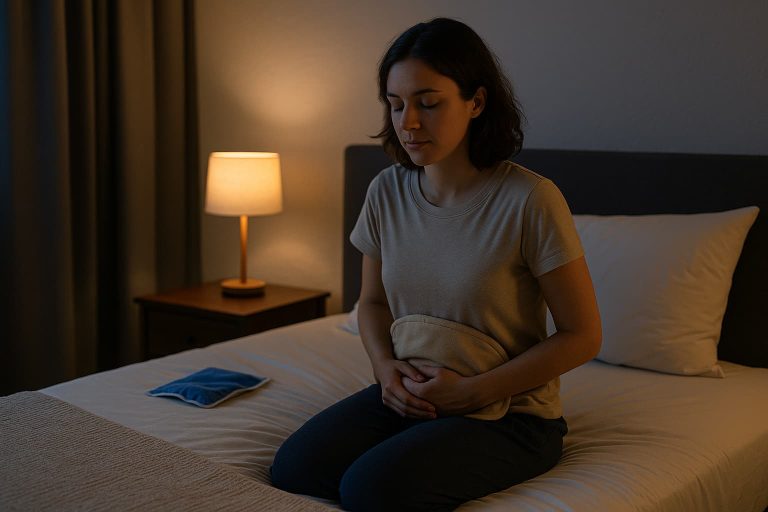This Is How Sleep Affects Your Immune System (More Than You Think)
It’s that time of year—sniffling coworkers, germ-covered door handles, and the annual rush for flu shots. While stocking up on hand sanitizer and herbal tea can help, there’s one powerful immune booster many people overlook: sleep.
You’ve probably heard that rest is important when you’re sick. But did you know that the quality and quantity of your sleep can directly impact how well your immune system works—even before you get sick?
In this post, you’ll learn exactly how sleep affects your immune system, what happens when you don’t get enough, and how to build sleep habits that support strong, natural immunity all season long.
How Sleep Affects Your Immune System
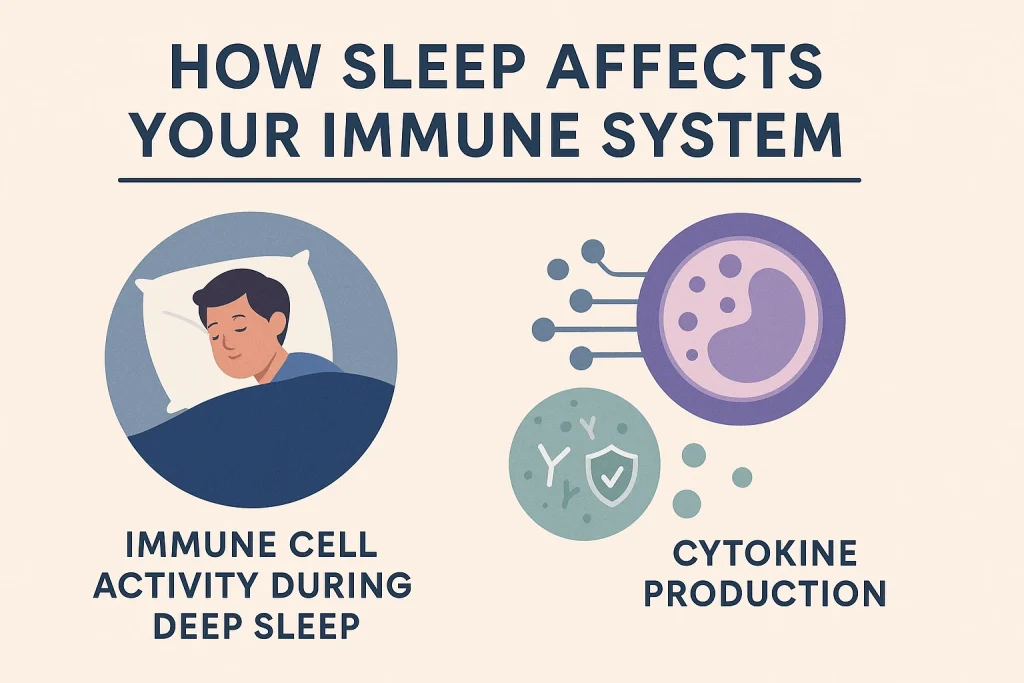
Sleep isn’t just for recharging your mind—it’s also when your body strengthens its natural defenses. While you rest, your immune system shifts into maintenance mode, working behind the scenes to keep you healthy and ready to fight off viruses, bacteria, and inflammation.
Here’s what happens during sleep:
- Infection-fighting cells go to work: Your body produces and releases cytokines—proteins that help regulate inflammation and respond to infections.
- T-cells become more active: These white blood cells are crucial for identifying and destroying harmful invaders. They perform better when you’re well-rested.
- Antibody production increases: During sleep, your immune system creates antibodies, which help your body recognize and defend against familiar threats.
When you consistently get enough quality sleep, these systems work smoothly—giving you a stronger immune response when exposed to viruses like the flu or common cold.
Even one or two nights of poor sleep can start to throw things off. Your immune defenses begin to weaken, making you more vulnerable to illness and slowing your recovery time.
For example, a study by the National Institute for Occupational Safety and Health found that just one night of only four hours of sleep reduced natural killer (NK) cell activity by nearly 30%. That’s a significant dip in one of your body’s main virus-fighting defenses.
Another review published on PubMed Central confirmed that chronic sleep loss weakens both innate and adaptive immunity, fueling inflammation and increasing susceptibility to infection.
The Immune Risks of Poor Sleep
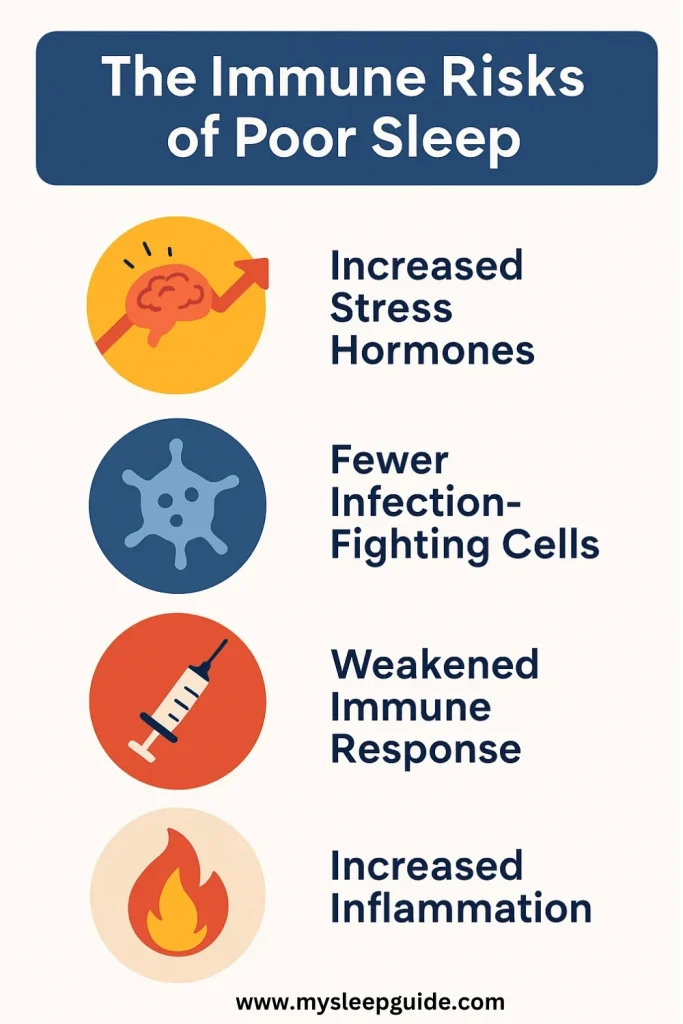
You might be able to power through a busy day on five hours of sleep—but your immune system can’t.
When you’re sleep-deprived, your body produces more cortisol, the stress hormone. In small amounts, cortisol helps you stay alert. But with ongoing poor sleep, cortisol stays elevated—which starts to suppress immune function.
That means your body is slower to react to viruses, bacteria, and inflammation.
Here’s what else happens when you skimp on rest:
- T-cells lose efficiency and natural killer cells slow down.
- Vaccine response weakens: Sleep-deprived individuals produce fewer antibodies after vaccinations.
- Longer recovery times: Illness hits harder and lasts longer when your immune system isn’t fully recharged.
- Inflammation increases: Chronic sleep loss contributes to low-grade inflammation, which worsens asthma, arthritis, and even digestion.
And it’s not just short-term sniffles. Long-term sleep deprivation is linked to chronic conditions like heart disease, diabetes, and autoimmune disorders—all of which have strong ties to immune function.
Even missing just a couple of hours a few nights a week can quietly chip away at your immune resilience.
Real-Life Example
Ever notice how you’re more likely to catch a cold after a few nights of poor sleep?
One reader, Sarah, a 42-year-old teacher, told us she always seemed to get sick during report card season. Despite eating well and taking her vitamins, she kept coming down with colds. The missing piece? Sleep. She was averaging less than five hours a night while grading papers. Once she made it a priority to get to bed just 30 minutes earlier, she didn’t just feel better—she actually stopped getting sick so often.
A small shift, big immune upgrade.
Why Sleep Quality Matters (Not Just the Hours)
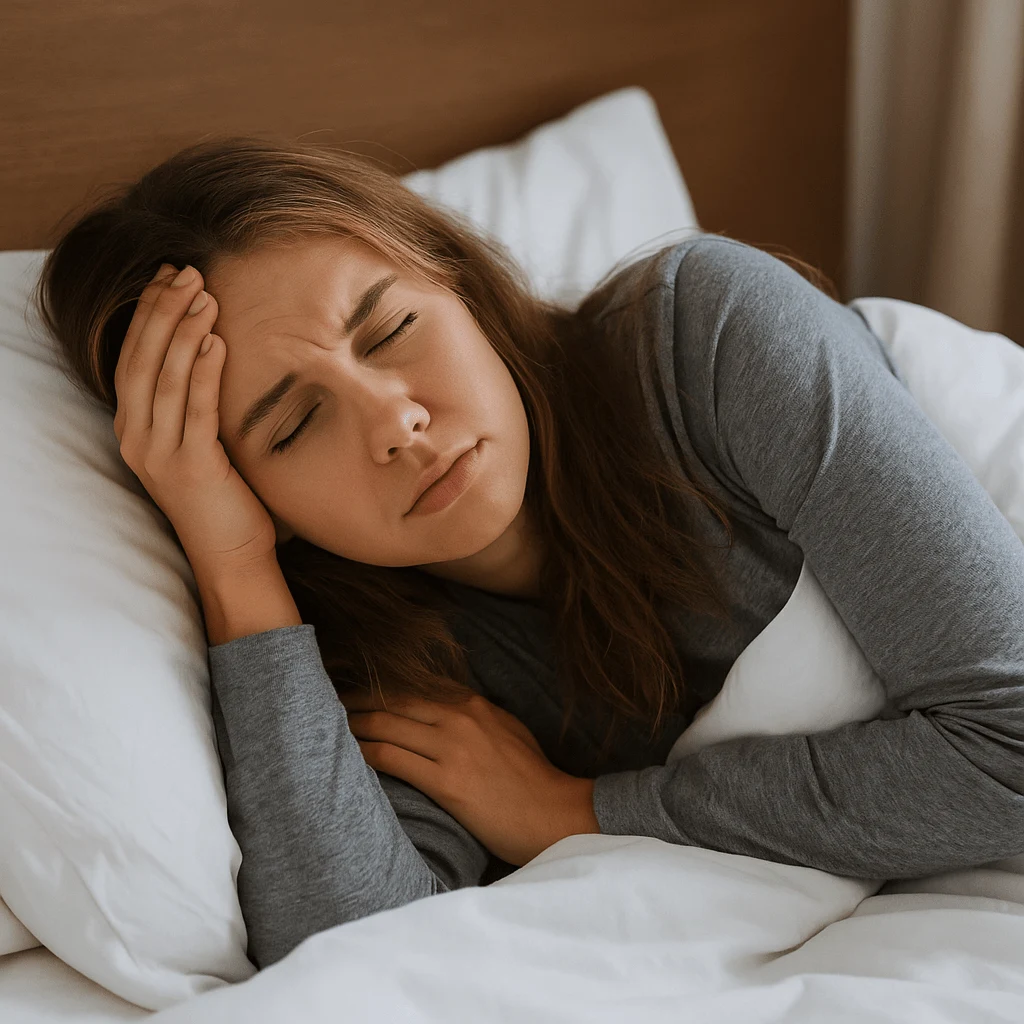
Getting eight hours of sleep sounds ideal, but if you’re tossing and turning all night, your body may still miss out on the immune benefits.
That’s because it’s the quality of your sleep—especially the time spent in deep and REM stages—that makes the biggest difference for your immune system.
Here’s what happens during high-quality sleep:
- Deep sleep (slow-wave sleep): Your body repairs tissues, builds immune cells, and produces anti-inflammatory cytokines.
- REM sleep: Helps regulate stress hormones like cortisol, which influence immune balance.
- Disruptions: Waking up often or scrolling your phone before bed can shorten these stages, leaving you groggy and less protected.
That’s why people say, “I slept nine hours and still feel awful.” Without enough deep and restorative sleep, your immune system stays stuck in standby mode.
The good news? A few small tweaks can shift you from just sleeping… to sleeping in a way that strengthens your health.
Simple Sleep Habits to Strengthen Your Immune System
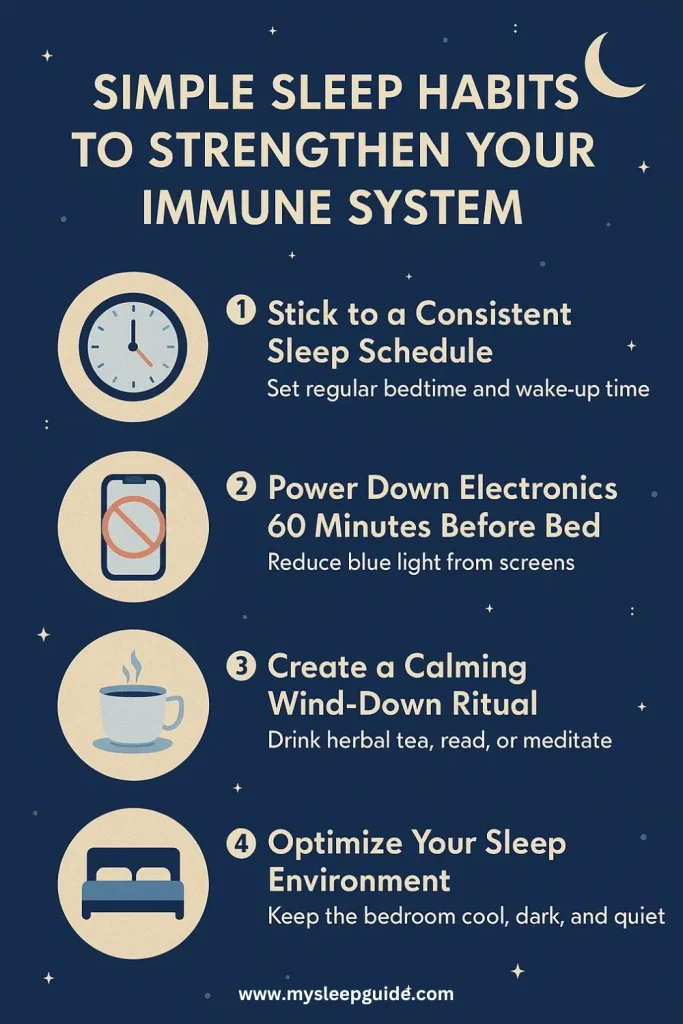
Want to help your immune system while you sleep? These habits are gentle, natural, and surprisingly effective.
Start with one or two, and build from there:
1.Stick to a Consistent Sleep Schedule
Your body’s circadian rhythm loves routine. Going to bed and waking up at the same time every day helps regulate melatonin and supports deeper sleep.
2.Power Down Electronics 60 Minutes Before Bed
Blue light from screens suppresses melatonin. Try swapping the scroll for something soothing:
- Reading
- Gentle stretching or yoga
- Journaling or a gratitude list
3.Create a Calming Wind-Down Ritual
A regular pre-bed routine signals your body that it’s time to rest. Try:
- A warm shower or bath
- Herbal tea like lemon balm or chamomile
- Breathwork or guided meditation
Related Posts:
4.Optimize Your Sleep Environment
Set your bedroom up for deep, uninterrupted sleep:
- Keep it cool, dark, and quiet
- Use blackout curtains or an eye mask
- Try white noise or a fan to block out distractions
5.Limit Caffeine and Alcohol in the Evening
Caffeine can linger for six hours or more, and alcohol disrupts REM sleep. Both can mess with your immune-boosting rest.
Every small change helps. You don’t have to be perfect—just consistent.
4 Ways to Boost Your Immune System During Flu Season
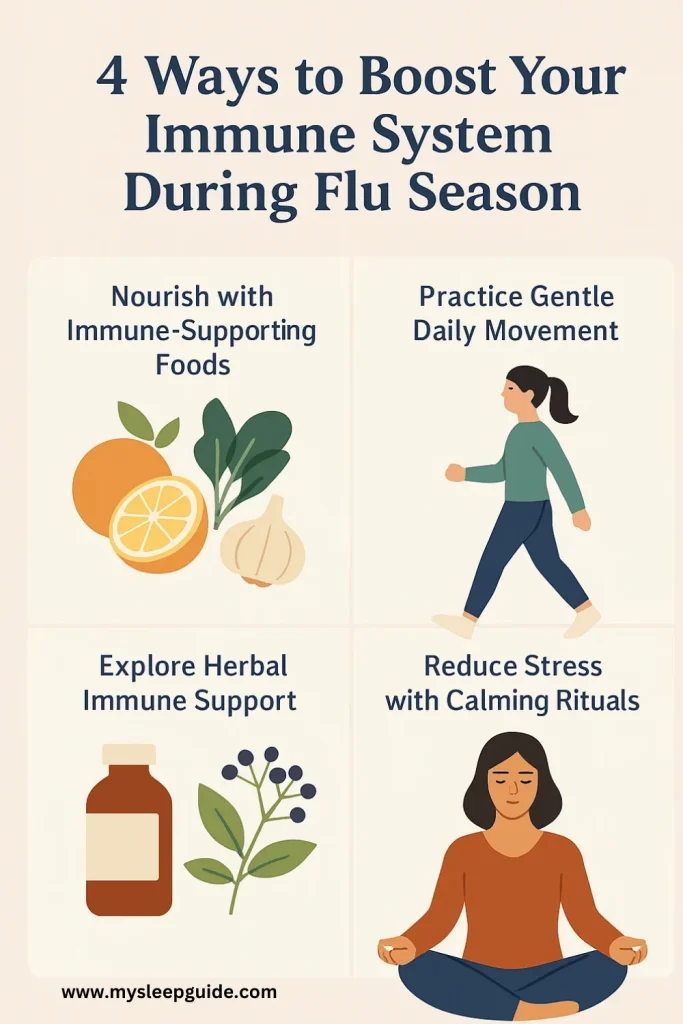
Sleep is the foundation. But pairing it with other healthy habits can take your immune strength even further.
Here are a few to try:
Eat Immune-Supporting Foods
Whole foods rich in antioxidants and minerals help your body stay resilient. Add:
- Citrus fruits, bell peppers, kiwi (vitamin C)
- Leafy greens, pumpkin seeds (zinc, magnesium)
- Garlic and ginger (anti-inflammatory and antimicrobial)
Move Your Body Daily
Movement supports circulation, reduces stress, and helps your body detox naturally. Try:
- A 20-minute walk
- Gentle yoga
- Evening stretching
Moving during the day can also help you sleep better at night.
Consider Herbal Immune Support
Some herbs have immune-boosting potential:
- Elderberry: May reduce cold and flu duration
- Echinacea: Supports white blood cells
- Astragalus: Traditional immune tonic
Always talk to your doctor if you have health conditions or take medications.
Manage Stress with Calming Rituals
Chronic stress weakens immunity. Try simple tools:
- Deep breathing (like 4-7-8 or box breathing)
- Journaling or gratitude writing
- Unplugging from screens
Each habit works on its own—but together with quality sleep, they create a powerful immune-support toolkit.
Sleep Is a Superpower—Start Using It
You don’t need a cabinet full of pills to stay healthy this flu season. One of your strongest defenses is something you already have: sleep.
As you’ve seen, how sleep affects your immune system isn’t just another wellness trend—it’s backed by real science. Prioritizing deep, quality rest does more than help you feel refreshed. It strengthens your immune defenses, helps your body fight off illness, and lays the groundwork for long-term health.
Let’s recap:
- Sleep supports the production of immune cells, antibodies, and inflammation-fighting proteins.
- Poor sleep weakens your defenses and slows recovery.
- It’s not just about hours—sleep quality matters just as much.
- Simple habits like winding down early, avoiding late caffeine, and creating a calm sleep environment can make a real difference.
Start with one small shift tonight. Maybe it’s turning off your phone earlier, brewing a calming tea, or dimming the lights to help melatonin do its job. You’ll feel better—and your immune system will too.
What’s one sleep habit you’ll try this week? Share it in the comments or send this guide to a friend who could use a healthy boost this season.
FAQ: Sleep and Immune Health
How does lack of sleep affect your immune system?
Lack of sleep reduces infection-fighting cells like T-cells and natural killer cells. It also increases cortisol levels, which suppress immune function and slow recovery.
Is your immune system weaker at night?
No. Your immune system actually becomes more active while you sleep, releasing cytokines and repairing damage. Quality sleep supports this nighttime immune activity.
Does night shift lower your immune system?
Yes. Night shift work can disrupt your circadian rhythm, lower melatonin, and increase inflammation—all of which impair immune function.
Why does every illness get worse at night?
Cortisol naturally drops at night, reducing inflammation control. That’s why symptoms like pain or congestion often feel more intense. Also, lying down can make some symptoms more noticeable.
